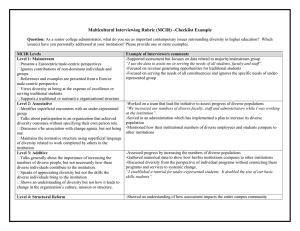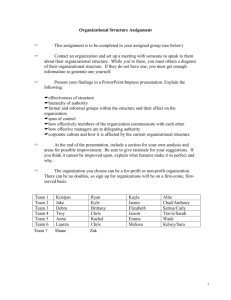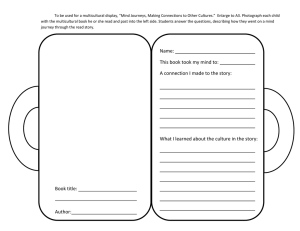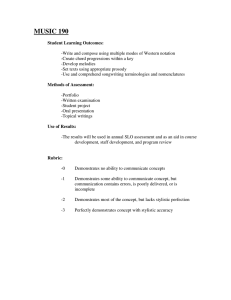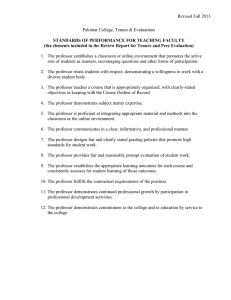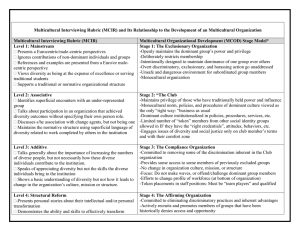Multicultural Interviewing Rubric (MCIR) –Notes Sheet MCIR Levels Interviewers Comments
advertisement
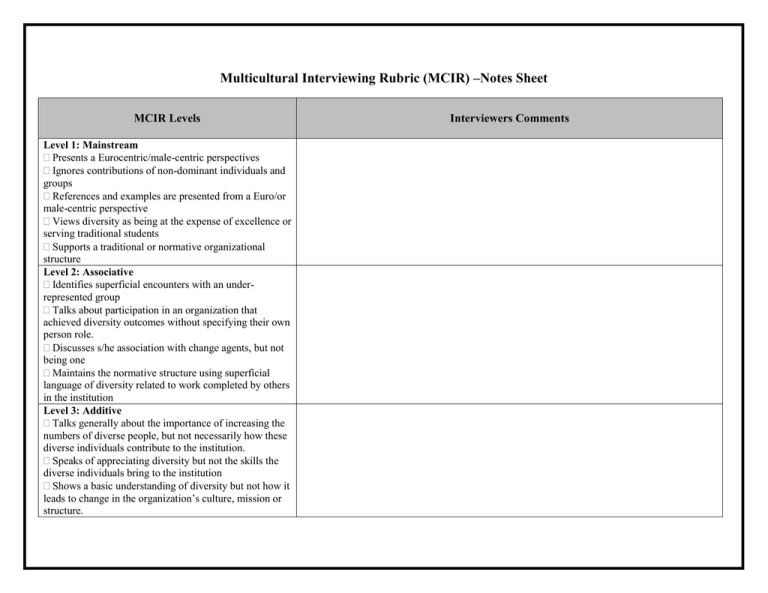
Multicultural Interviewing Rubric (MCIR) –Notes Sheet MCIR Levels Level 1: Mainstream Presents a Eurocentric/male-centric perspectives Ignores contributions of non-dominant individuals and groups References and examples are presented from a Euro/or male-centric perspective Views diversity as being at the expense of excellence or serving traditional students Supports a traditional or normative organizational structure Level 2: Associative Identifies superficial encounters with an underrepresented group Talks about participation in an organization that achieved diversity outcomes without specifying their own person role. Discusses s/he association with change agents, but not being one Maintains the normative structure using superficial language of diversity related to work completed by others in the institution Level 3: Additive Talks generally about the importance of increasing the numbers of diverse people, but not necessarily how these diverse individuals contribute to the institution. Speaks of appreciating diversity but not the skills the diverse individuals bring to the institution Shows a basic understanding of diversity but not how it leads to change in the organization’s culture, mission or structure. Interviewers Comments Level 4: Structural Reform Presents personal stories about their intellectual and/or personal transformation Demonstrates the ability and skills to effectively transform programs and services Demonstrates the ability to communicate a commitment to promoting diversity, equity and inclusion Shows commitment to eliminating discriminatory and exclusive practices Goes beyond mere numbers and demonstrates informed levels of understanding regarding the value of diverse employees and students Gives evidence of broad institutional impact of actions which affect inclusive organizational development Level 5: Social Action/Social Justice Demonstrates indicators present in Level 4 – Structural Reforms Demonstrates how multicultural understanding should be implemented beyond their specific institution at a local, national and global level Demonstrates understanding of diversity at complex intersectional levels Articulates how s/he has provided leadership on key social and educational issues Shows a personal commitment and responsibility to actively lead the efforts related to integrating diversity into all aspects of the institution Champions the creation of a multicultural/inclusive organization Johnson, Ernest & Terrell-Powell, Yvonne L. (2013). Multicultural Competency Interviewing Rubric Checklist
